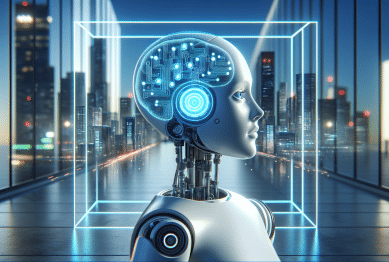Quantum computing is reshaping technology, promising breakthroughs across industries from cybersecurity to drug discovery. This article explores what quantum computers really are, why they matter, and how their power could change the way the world solves complex problems—possibly faster than most people expect.
Understanding Quantum Computing: Beyond Binary Logic
Quantum computing is dramatically different from the computers that most people use daily. Unlike traditional machines that function using bits—units that represent either zero or one—quantum computers operate with quantum bits, or qubits, which can represent zero, one, or both simultaneously thanks to the phenomena of superposition. This unique property lets these advanced machines process massive quantities of data in ways that classical computers simply cannot match. This technological leap brings a new computing paradigm, unlocking capabilities that were long considered theoretical.
Entanglement is another cornerstone of quantum computing’s power. When qubits become entangled, the state of one instantly influences the state of another, regardless of distance—a concept that sounds almost magical but has been repeatedly observed in laboratory settings. Entanglement enables computations that link otherwise separate pieces of information, creating interconnected networks of data with high computational speed. The integration of entanglement into processors could drive advances in algorithm development and data analysis unseen before, forming the backbone of future artificial intelligence and cryptography innovations.
Quantum computing’s key benefits come from the way it efficiently solves complex mathematical problems. Certain tasks, such as simulation of molecules for drug design or optimization in logistics networks, are either impractical or impossible on today’s conventional hardware. Quantum computers can explore thousands—or even millions—of possible solutions at once, offering the promise of breakthroughs in fields like climate modeling, financial forecasting, and encrypted data management. These advantages explain the surge in global research and investment toward scaling quantum chip fabrication and software ecosystems.
Potential for Revolutionizing Cybersecurity
Cybersecurity stands to be one of the fields most dramatically affected by quantum technology. Classic encryption systems such as RSA depend on the difficulty of factoring large numbers—a process that takes even supercomputers vast amounts of time. Quantum computers, equipped with algorithms like Shor’s, are theoretically capable of cracking such systems by factoring these numbers exponentially faster than any silicon-based device. This has sparked debates and rapid innovation around ‘post-quantum cryptography’—new methods specifically designed to be resistant to quantum attacks.
Governments and corporations recognize that quantum computing has the potential to expose vulnerabilities in digital infrastructure. As a result, many are investing in research to transition from current encryption methods to quantum-secure standards. Collaborations between academic institutions and industry groups are already producing prototype algorithms intended to withstand future quantum threats, with standards organizations such as NIST organizing international competitions to identify viable replacements (Source: https://www.nist.gov).
Transitioning to quantum-resistant encryption won’t happen overnight. It involves updating digital certificates, communication protocols, and network systems used globally. The complexity of rebuilding trust in digital transactions is immense—but necessary as quantum computers evolve. Entities that preemptively adopt quantum-secure technologies may experience smoother transitions, decreased risk exposure, and a heightened reputation for information security. Over time, this proactive stance could offer peace of mind that critical infrastructure is protected from future high-powered threats.
Quantum in Healthcare: Drug Discovery and Diagnostics
The computational challenges faced in pharmaceutical research are immense. Traditional supercomputers can take months or years to simulate the molecular interactions needed to create new medicines. Quantum computing’s natural strength in parallel processing enables it to dramatically accelerate this process, allowing researchers to simulate complex molecules with precision and speed. This could lead to faster identification of promising drug candidates, reducing the long timelines and high costs often required for traditional drug discovery (Source: https://www.nih.gov).
Quantum algorithms are showing early promise in modeling protein folding, a biological process critical to understanding diseases. Classical computers struggle with the astronomical possibilities involved in protein structures, but quantum machines can evaluate multiple configurations at once. This technique could unlock new knowledge for personalized medicine, identifying treatment options tailored to individual genetic profiles. As quantum processors become more powerful, their contribution to biomedicine could deepen further, expediting both diagnosis and the path from laboratory discoveries to clinical applications.
Beyond drug development, quantum technology might someday improve disease diagnosis and public health surveillance. Machine learning models run on quantum hardware could analyze massive health data sets for patterns invisible to traditional algorithms, potentially enabling earlier interventions for at-risk populations. Already, healthcare organizations and research labs are starting to experiment with these concepts—sometimes through public-private partnerships that aim to enhance healthcare accessibility and advance predictive analytics for complex conditions.
Quantum Computing and Artificial Intelligence
Quantum computing’s ability to process information at scale pairs naturally with artificial intelligence (AI). Many AI models rely on finding patterns in large data sets, a process that requires extraordinary computational power. Quantum computers, with their parallelism and ability to crunch enormous numbers efficiently, can boost machine learning, natural language processing, and decision-making optimization. This union—often termed ‘quantum machine learning’—promises to advance AI capabilities well beyond today’s standards (Source: https://www.ibm.com/quantum).
Quantum algorithms can help solve optimization problems much faster than current AI systems, influencing everything from automated trading to smart logistics. For instance, delivery routes for fleets of vehicles can be recalculated almost instantaneously to respond to changing conditions. In the realm of robotics, quantum-enhanced AI may help machines learn from fewer examples or simulate the consequences of their actions with greater accuracy. These applications point toward a future where quantum computing underpins many aspects of automated reasoning and practical decision-making in real-time settings.
Collaboration is emerging as a major theme in this space. Tech companies, universities, and government agencies are publishing open-source quantum algorithms and building cloud platforms that allow researchers to access quantum processors remotely, stimulating experimentation and growth in the ecosystem. As industry standards coalesce, expect to see both practical innovations and entirely new forms of hybrid computation that fuse classical and quantum resources for maximum advantage in AI and analytics tasks.
Barriers and Bridges to Widespread Quantum Adoption
Despite surging interest and investment, several challenges remain before quantum computing becomes mainstream. First, quantum computers are notoriously sensitive to environmental interference—a phenomenon known as decoherence. Tiny vibrations, radiation, or temperature changes can cause errors in calculations, forcing developers to design incredibly sophisticated shielding and error-correction protocols. Only a handful of companies and research labs have achieved the engineering precision necessary to sustain stable qubits for extended periods.
Building a useful and scalable quantum computer requires advances in materials science, chip manufacturing, and cryogenics. Current machines are often large, expensive, and require environments colder than outer space to operate effectively. Some researchers are exploring hybrid systems that leverage both quantum and classical resources, using each where its advantages are strongest. Efforts also focus on improving quantum error-correction, a field that draws on mathematics, physics, and computer science to make quantum algorithms robust enough for commercial adoption.
Moreover, widespread adoption will depend on creating a quantum computing workforce skilled in both theory and application. Universities and training programs are expanding their quantum curriculum, often in partnership with major tech firms, to prepare new generations of scientists and engineers. Public understanding of quantum computing’s realities and limitations is vital too—helping organizations and communities make informed choices as quantum technology becomes part of ordinary daily life.
Opportunities for Industries and Individuals
The seismic shift brought on by quantum computing isn’t limited to academia or technology giants. Sectors ranging from finance and energy to logistics and entertainment are already exploring quantum-powered solutions. For example, financial analysts are investigating quantum algorithms for pricing complex derivatives and optimizing portfolios under uncertainty. The energy industry is modeling new battery materials and grid management strategies using quantum simulations, hoping to streamline development and improve efficiency (Source: https://www.energy.gov).
Individuals can also benefit from following quantum trends. Opportunities exist to enroll in open-access quantum programming courses provided by major universities and tech enterprises, or even to experiment with real quantum processors through cloud platforms. Gaining exposure to quantum concepts now can foster innovation, open career doors, and ensure active participation in the tech revolutions of tomorrow. Being quantum-literate is likely to become a competitive skill, similar to familiarity with traditional digital technologies in previous decades.
Finally, quantum computing offers ways for smaller companies and startups to leapfrog established competitors. By leveraging emerging software and collaborating with research consortia, new entrants can accelerate discovery cycles and address previously unsolvable challenges. As open-source projects lower the cost of entry and facilitate resource sharing, the democratization of quantum tools may offer global benefits, spreading the advantages well beyond tech hubs and urban centers.
References
1. National Institute of Standards and Technology. (n.d.). Post-Quantum Cryptography. Retrieved from https://www.nist.gov
2. National Institutes of Health. (n.d.). Quantum Computing for Drug Discovery. Retrieved from https://www.nih.gov
3. IBM Quantum. (n.d.). Quantum computing explained. Retrieved from https://www.ibm.com/quantum
4. U.S. Department of Energy. (n.d.). Quantum Information Science. Retrieved from https://www.energy.gov
5. Brookings Institution. (n.d.). Quantum Computing and National Security. Retrieved from https://www.brookings.edu
6. Massachusetts Institute of Technology. (n.d.). Quantum Machine Learning. Retrieved from https://www.csail.mit.edu









